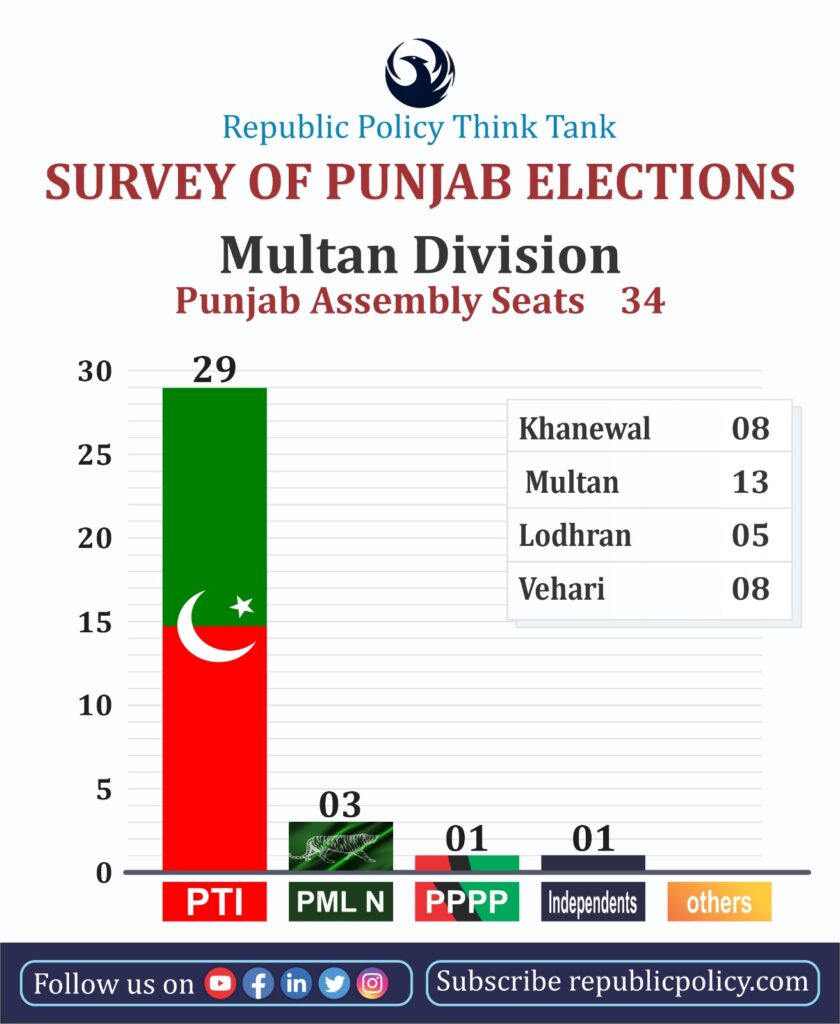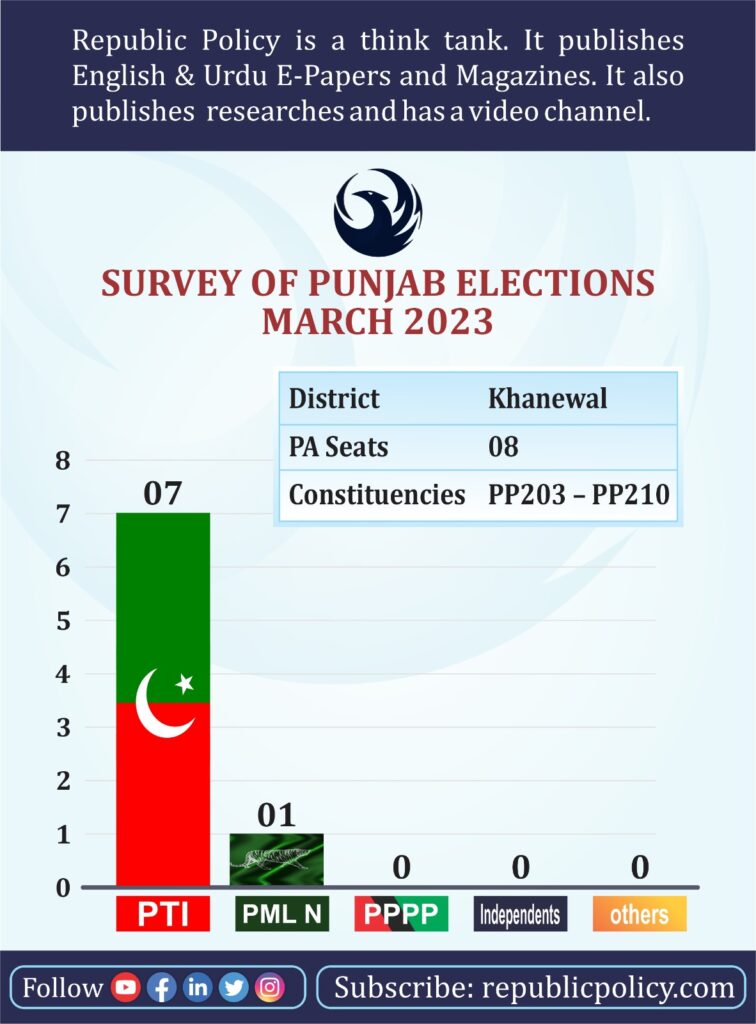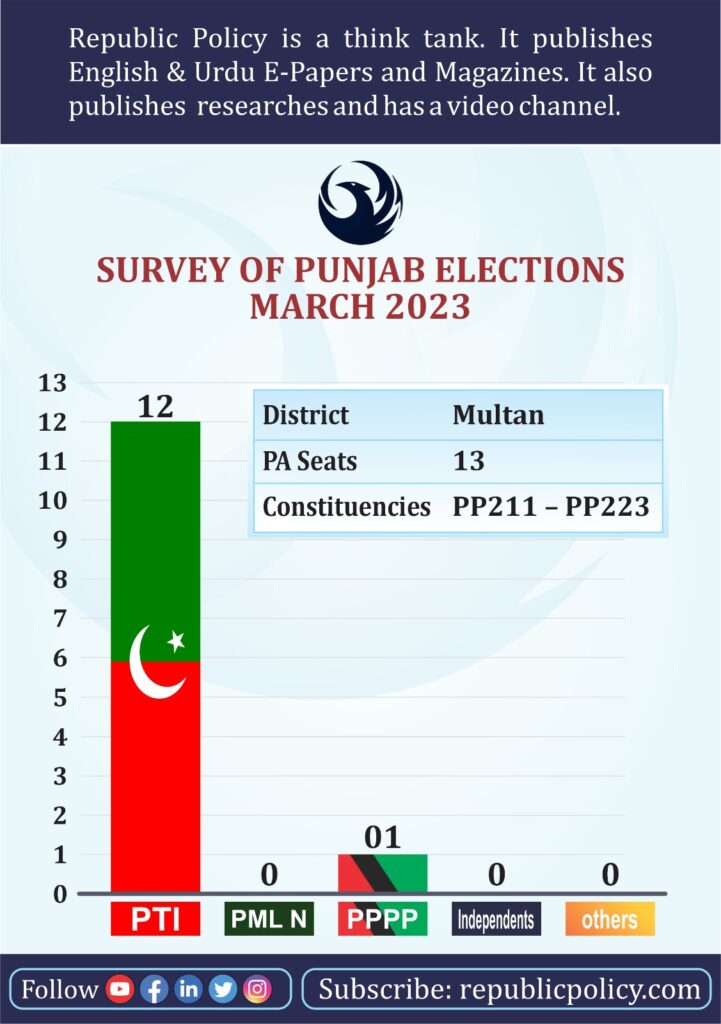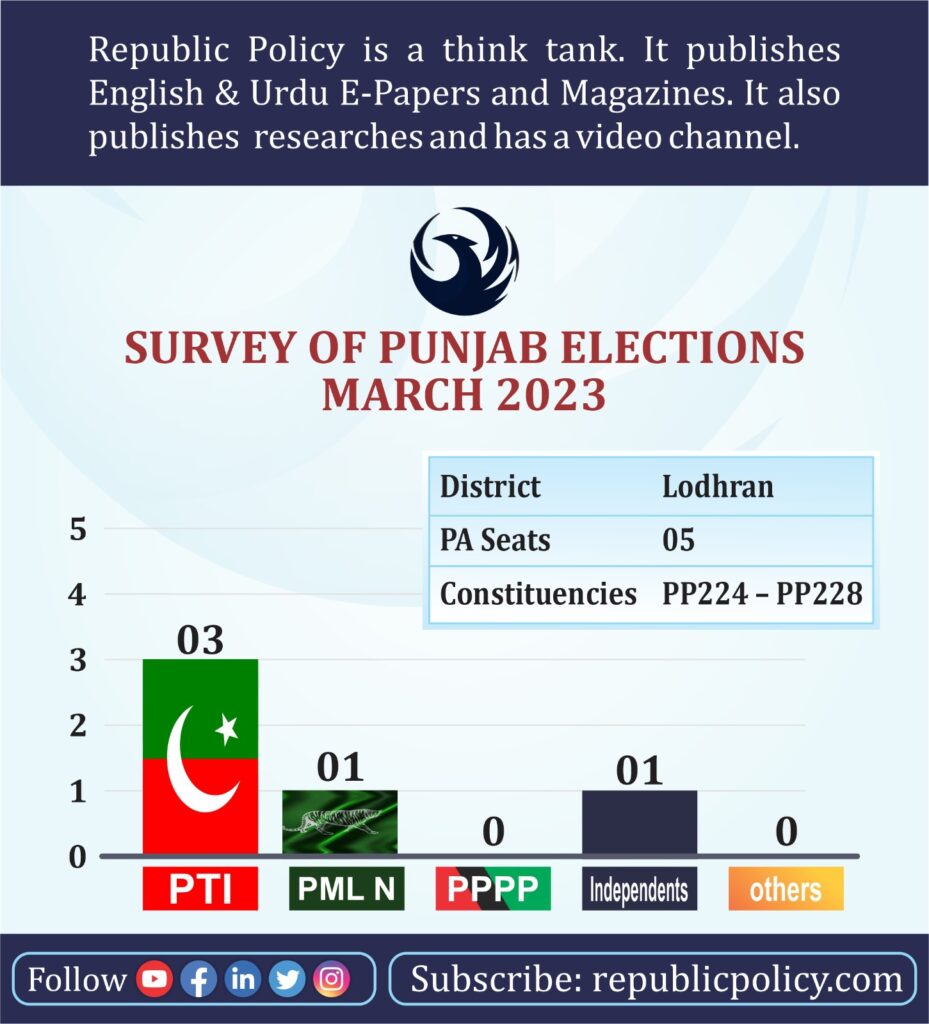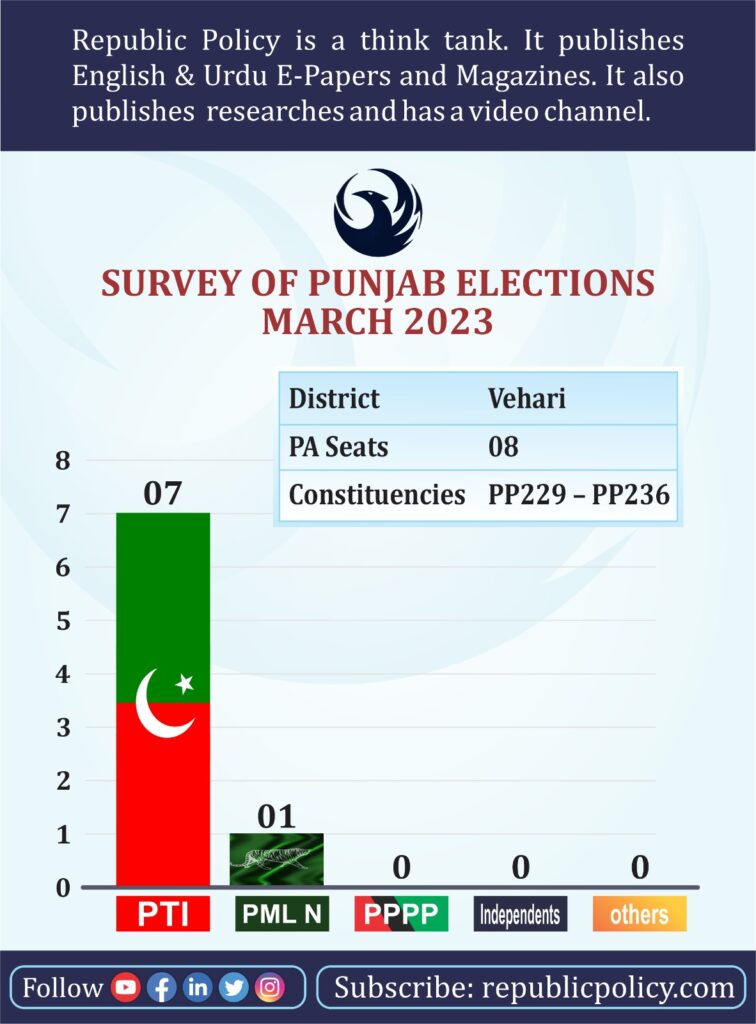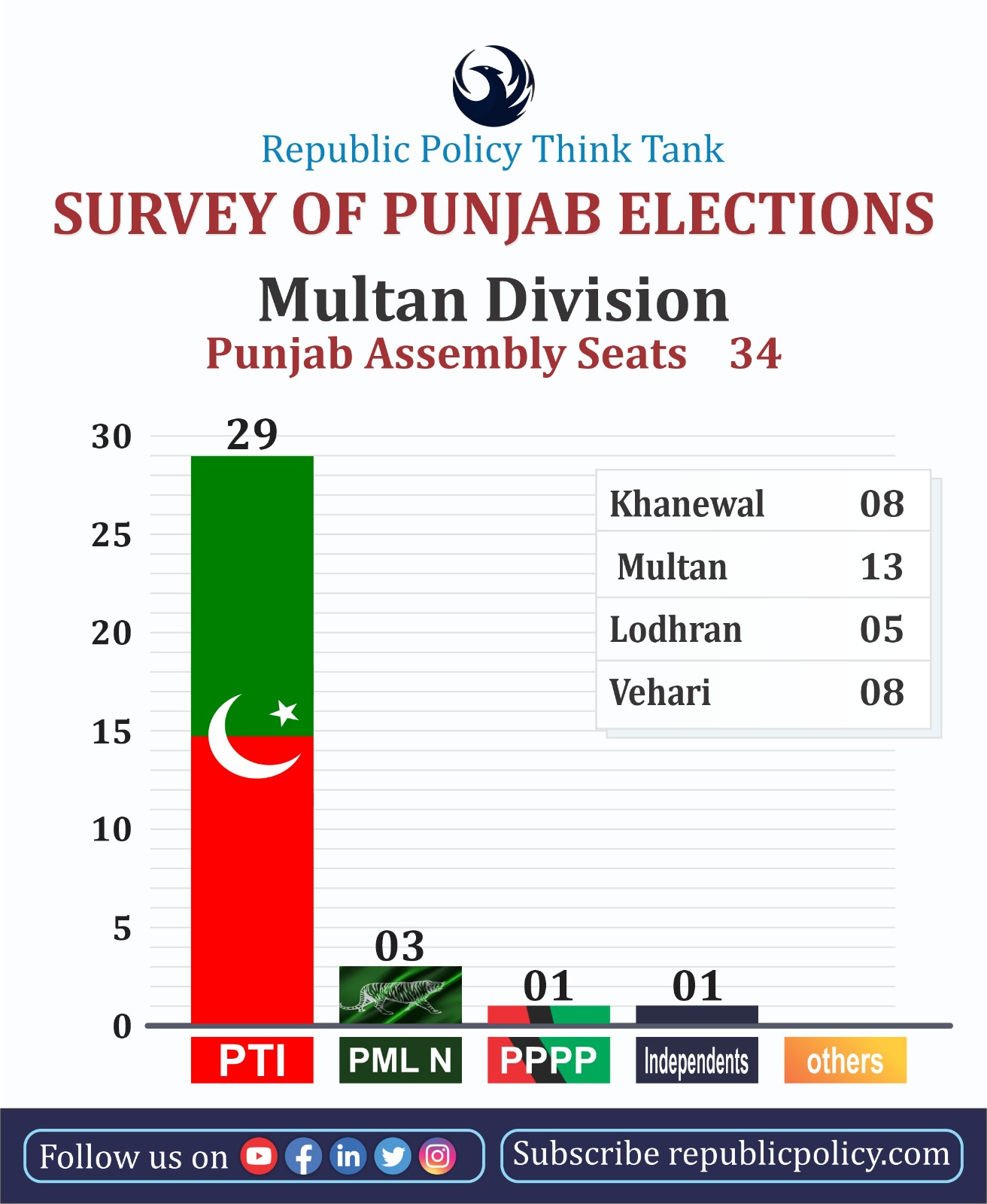Tahir Maqsood Chheena
Survey of Multan Division
A survey is a technique to seek accumulative information on a specific question. The measurement of information continuously varies as representative groups of people are targeted. A survey aims to know the trend so that better action plans may be structured. A political survey is always sensitive. It represents the sacred cause of democracy, so impartiality and neutrality are critical. The survey organizers must be dispassionate and work according to the structures of the survey scheme.
Types of Surveys
Following are the five mainstream surveys.
- Face-to-face surveys
- Telephonic surveys
- Paper and pencil surveys
- Social media surveys (normally online)
- Representative surveys
Then, political surveys are the measurement of political trends. Political opinions are constantly changing. Therefore, the authenticity of the surveys remains highly confined to the specific time of the survey. Political surveys always create criticism. Then, surveys are carried out to know the public sentiment. Moreover, political surveys are always subject to multiple factors of electioneering. Pakistani politics is fundamentally constituency politics. Therefore, knowing each constituency is essential for conducting a survey. In constituencies, electives are also important. However, lately, the party vote has dominated even the electives. Now, in Punjab, there are only a few electables who can win constituencies. Yet, strong candidates are required to win the constituencies in Punjab. Polling day, election campaign, political swing and other factors are also important to win elections.
Methodology of the survey:
republicpolicy.com has conducted a constituency-wise survey of all Punjab assembly constituencies. A provincial constituency is divided into union councils. Thus, unit of the survey is UC. Then, at least, 25 representative people are a sample size of a UC. Accordingly, all sample sizes of UC are calculated to find an accumulative result. Furthermore, the sample result is also make synchronized with the representative communities of the constituency.
It is purely a party-based survey, and the question is one; To which political party will you vote?
Multan division consists of Khanewal, Multan, Lodhran and Vehari districts. The survey results are following;
